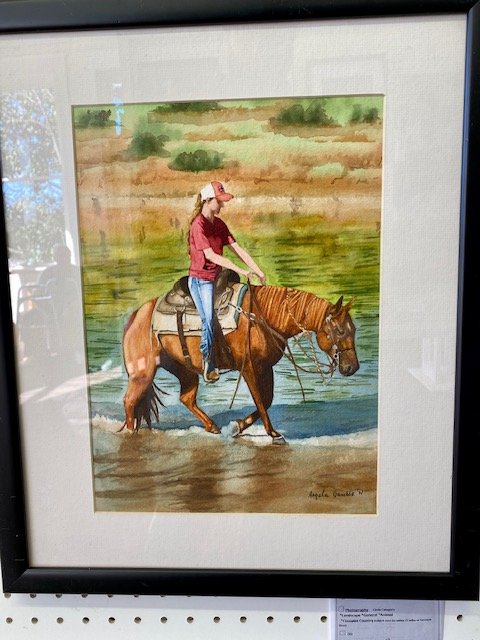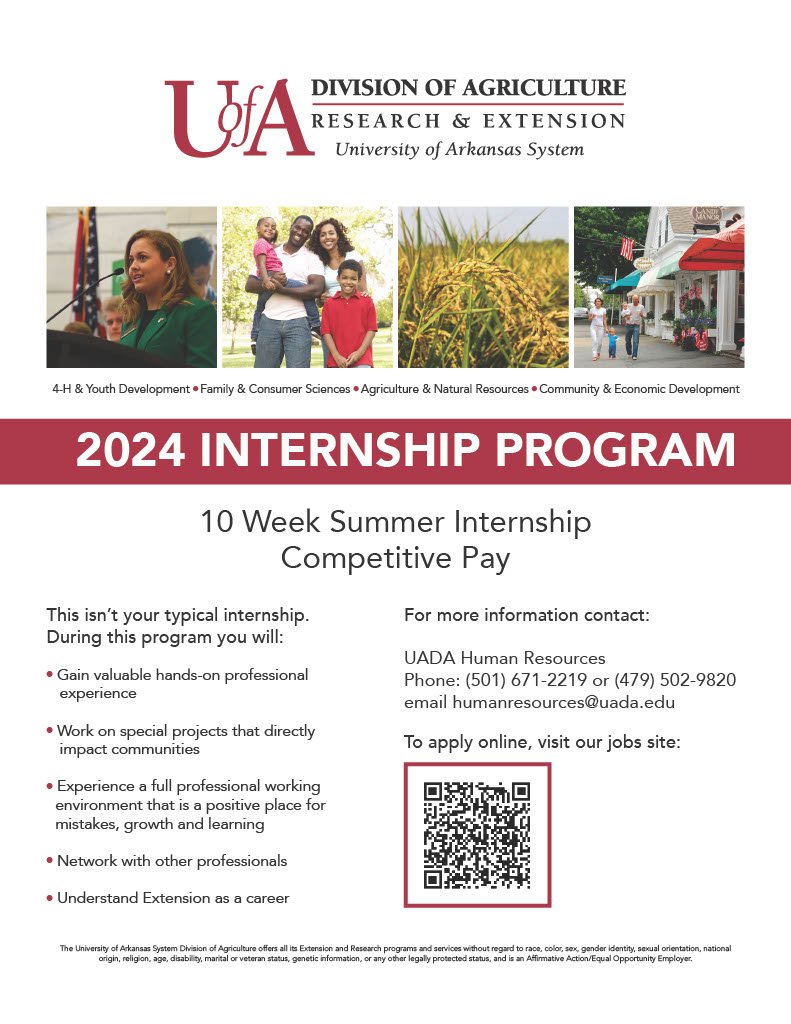The photo of Saturday’s solar eclipse was taken by Jessica Roldan of Texarkana through eclipse glasses on Saturday, October 14, 2023 at 11:52:00 AM CDT.
Gains in iron, building material shipments push Arkansas River tonnage up 12%
by Michael Tilley (mtilley@talkbusiness.net)
Even with an 8.4% decline and 12.2% decline in August and September, respectively, tonnage on the Arkansas River totaled 9.282 million tons through September, up 12%, according to the U.S. Corps of Engineers.
Inbound shipments – those coming from off the river system – totaled 3.463 million tons during the first nine months of 2023, up 31% compared with the same period in 2022. Outbound shipments in the first nine months totaled 3.111 million tons, up 6% compared with the same period in 2022. Internal shipments – those sent between port operations on the river – totaled 2.707 million tons in the first nine months, down 1% compared with the 2022 period.
September tonnage of 858,756 tons was down 12.2% compared with September 2022. August tonnage was 974,263 tons, down 8.4% compared with August 2022.
Gains in iron, building material shipments push Arkansas River tonnage up 12%
Retired Army Col. Marcus Jones to challenge U.S. Rep. French Hill
by Roby Brock (roby@talkbusiness.net)
Marcus Jones, a retired Army Colonel, said Tuesday (Oct. 17) he will run as a Democrat to challenge incumbent U.S. Rep. French Hill, R-Little Rock.
“French Hill isn’t a bad guy, he’s just the wrong guy,” Jones said. “Arkansas is the best state in the country. We shouldn’t be stagnating. My years of service protecting our nation compel me to run for this position, because we can do better.
“As our congressman, I will fight to ensure every hard-working Arkansan can achieve their God-given potential. Together, we will build a fair system that doesn’t knock you down every time you get a little bit ahead. We will win this race by ignoring the chaos in Washington and focusing on the issues that matter most to our families here in Central Arkansas.”
Retired Army Col. Marcus Jones to challenge U.S. Rep. French Hill
Cooperative Extension Service to offer Experiential Scholars Program internship in Summer 2024
By Rebekah Hall
U of A System Division of Agriculture
LITTLE ROCK — For college students, internships provide important hands-on training in their field of study. In 2024, students at Arkansas colleges and universities will have the opportunity to dive deep into three focus areas and work with mentors as part of the Cooperative Extension Service’s new Experiential Scholars Program.
SEEKING SCHOLARS — The Cooperative Extension Service will offer a new internship opportunity in Summer 2024 for college students looking for hands-on training in water/soil conservation, food safety/nutrition and health and community and economic development. (Division of Agriculture flyer.)
“Internships have been shown over and over again to provide many different benefits for participants and organizations,” said Julie Robinson, extension associate professor of leadership for the University of Arkansas System Division of Agriculture. “It helps participants gain real-life work experiences, it helps them decide if they want to work for the organization, and it helps organizations provide those experiences and hopefully onboard some potential future employees.”
Robinson said the program is funded through a $750,000 grant from the U.S. Department of Agriculture’s National Institute of Food and Agriculture.
Experiential Scholars Program interns will focus on one of three areas: water/soil conservation, food safety/nutrition and health, or community and economic development. The inaugural program will begin May 20, 2024, and end July 19, 2024. Students can apply at bit.ly/ces-esp-app.
During the nine-week paid summer internship, participants will work with extension mentors. Robinson said faculty in family and consumer sciences, crop, soil and environmental science and community, professional and economic development will serve as the primary mentors for the program, though others may be included in the future.
“Students will work alongside subject matter faculty members and specialists,” Robinson said. “They’ll get to travel around the state, deliver educational programming, plan research and demonstrations, and really shadow and learn from their mentors. They’ll learn more about that specific area of research and focus.”
Recruiting from 1890 institutions
The $750,000 in funding for the program, which covers a five-year grant cycle, will include the cost of interns’ salaries, travel and lodging. Robinson said the goal is to recruit seven students for each year of the grant cycle. Students will be based in or near central Arkansas because they will be traveling often with their extension mentors, whose offices are housed at the extension Little Rock State Office.
The program will recruit applicants from Arkansas colleges and universities and those from surrounding areas, with an emphasis on historically black institutions included in the 1890 land-grant system, which were established under the Second Morrill Act of 1890.
“We will definitely be trying to heavily recruit from the University of Arkansas at Pine Bluff, potentially even in other states with 1890 institutions,” Robinson said.
Robinson said that in addition to providing scholars with career readiness and leadership skills, the Experiential Scholars Program will also help raise awareness of extension’s mission in the state and develop the next generation of future employees or volunteers.
“Even if the interns who come into this program decide that extension or the Division of Agriculture is not for them, we’ve at least trained people who will understand the programming that we offer,” Robinson said. “They may be future volunteers through Master Gardeners, 4-H, or our Extension Homemakers program, or they may participate in the LeadAR program in the future.
“I love the idea that we will have advocates for the division who understand what we do and can share with those in their community about what a great resource extension is,” she said.
Applications for the program are open, and students can apply at bit.ly/ces-esp-app. For more information about the Experiential Scholars Program, visit the program’s page on the Cooperative Extension Service website or contact Robinson at jrobinson@uada.edu.
The Cooperative Extension Service is the outreach and education arm of the University of Arkansas System Division of Agriculture.
To learn about extension programs in Arkansas, contact your local Cooperative Extension Service agent or visit www.uaex.uada.edu. Follow us on Twitter and Instagram at @AR_Extension. To learn more about Division of Agriculture research, visit the Arkansas Agricultural Experiment Station website: https://aaes.uada.edu. Follow on Twitter at @ArkAgResearch. To learn more about the Division of Agriculture, visit https://uada.edu/. Follow us on Twitter at @AgInArk.
Panel OKs audit of Arkansas governor’s lectern purchase, some FOIA-exempt records
KUAR | By Tess Vrbin / Arkansas Advocate
From the Arkansas Advocate:
Arkansas lawmakers approved a request Thursday and Friday for a nonpartisan investigation into Gov. Sarah Huckabee Sanders’ purchase of a $19,000 lectern, as well as expenditures by the governor’s office that were recently made private by a new law.
State Sen. Jimmy Hickey, R-Texarkana, asked the Legislative Joint Auditing Committee last month to authorize a probe of the lectern purchase by the Arkansas Legislative Audit, an independent body with the authority to investigate spending by any state or local government entity.
Hickey narrowed his second request after members of the Joint Auditing Executive Committee said Thursday that it was too broad. He’d initially asked the Auditing Committee to look into “all matters… made confidential” by Act 7 of 2023, which shields from the public all records and communications concerning the planning or provision of security services to the governor and other state elected officials, as far back as June 1, 2022.
Panel OKs audit of Arkansas governor’s lectern purchase, some FOIA-exempt records
Tess Vrbin/Arkansas Advocate
Arkansas Sen. Jimmy Hickey, R-Texarkana, asks the Legislative Joint Auditing Executive Committee on Thursday, Oct. 12, 2023 to approve his request for an audit into Gov. Sarah Huckabee Sanders’ purchase of a $19,000 lectern and the retroactive shielding of certain government expenses from public access. The committee approved both requests.
Baptist Health Opens UAMS Milk Bank Depots in Conway and Stuttgart
LITTLE ROCK — Baptist Health, in support of the University of Arkansas for Medical Sciences (UAMS) Milk Bank, has opened milk depots at two of its medical centers in Conway and Stuttgart.
The Conway Baptist Health Milk Depot and the Stuttgart Baptist Health Milk Depot are designated spaces for women to donate milk, which will be sent to the UAMS Milk Bank for screening, pasteurization and nutritional analysis. After processing, milk will be sent, according to need, to hospitals throughout Arkansas.
Located in the Monroe Building just off UAMS’ main campus in Little Rock, the UAMS Milk Bank, the first facility of its kind in Arkansas, focuses on the health of mothers and newborns in Arkansas through encouragement and support of breastfeeding. The new milk bank helps ensure a ready supply of donor milk for sick and vulnerable infants in neonatal intensive care units (NICU) around the state, shortening the time it takes for regional hospitals to receive critical milk supplies and improving outcomes for babies.
Baptist Health Opens UAMS Milk Bank Depots in Conway and Stuttgart
Walker Foundation Pledges $1 Million to UAMS Winthrop P. Rockefeller Cancer Institute — Funds Will Support New Radiation Oncology Center
By Andrew Vogler
LITTLE ROCK — The Willard & Pat Walker Charitable Foundation pledged $1 Million to the University of Arkansas for Medical Sciences (UAMS) Winthrop P. Rockefeller Cancer Institute.
“We are humbled by the decades-long support of the Walker Foundation — a relationship that has helped elevate UAMS in becoming a first-class provider of care in our region,” said Cam Patterson, M.D., MBA, UAMS chancellor and CEO of UAMS Health. “Willard and Pat Walker’s generosity was inspiring, and, as seen with the Radiation Oncology Center, their legacy of philanthropy continues to benefit many Arkansans.”
The UAMS Radiation Oncology Center, a $65 million, 58,000-square-foot structure at 3900 W. Capitol Ave. in Little Rock, was built to accommodate three new linear accelerators that customize radiation delivery based on the type and stage of a patient’s cancer. It is the only cancer center in Arkansas to offer Ethos Adaptive Therapy, a unique form of X-ray radiation that adapts to daily changes in a tumor’s shape and position over the course of treatment.
Application window open for summer 2024 County Extension Agent Internship program
By Rebekah Hall
U of A System Division of Agriculture
LITTLE ROCK — In today’s job market, it’s important for college students to get hands-on training in their field before graduating. For students pursuing degrees in agriculture or family and consumer sciences, the County Extension Agent Internship program offers the chance to explore a career as an extension agent and network with peers and professionals.
APPLICATIONS OPEN — Incoming college juniors and seniors will have the opportunity to experience the daily duties of county extension agents through the County Agent Internship Program, part of the Cooperative Extension Service. (Division of Agriculture flyer.)
The 10-week paid internship is a program of the Cooperative Extension Service, the outreach arm of the University of Arkansas System Division of Agriculture. Incoming college juniors and seniors pursuing degrees in agriculture, horticulture or family and consumer sciences are encouraged to apply. Applications close Jan. 5, 2024. Students can apply at bit.ly/ces-agent-internship-app.
Carla Due, extension Ouachita district director for the Division of Agriculture, said students selected for the internship program will experience the day-to-day duties of county extension agents.
“Where the county agent goes, so does the intern. They will experience fielding consumer questions, attending in-service trainings, assisting with educational programs and helping carry out 4-H youth events,” Due said. “Through these experiences, we hope that the students will have a greater understanding of what our county extension agents do and how they serve their communities.”
Interns will work with county agents in the areas of 4-H and youth development, family and consumer sciences, agriculture and natural resources and community and economic development. When applying, students will list their top three county preferences, so they can work close to where they live. Housing is not provided by extension, but county faculty may be able to help interns find an affordable place to live.
The Cooperative Extension Service announced the return of an internship program in late 2021. In the summer of 2022, a group of 11 students were selected for the program. In the summer of 2023, extension’s three district directors — Due, Jerry Clemons and Kevin Lawson — selected 15 students from universities in Arkansas, Missouri and Texas. Due said that from the 2022 and 2023 cohorts, extension has hired three interns for full time positions.
“It is our hope that these interns will return to us as county extension agents or be an advocate for extension when they graduate,” Due said. “The networking these interns will get during this 10-week period will be very important as they embark upon their professional careers.”
Natasha Hightower, who interned in Washington County in the summer of 2023 and focused on 4-H programming, said she received many benefits from the experience.
“This is an amazing way to learn about the Cooperative Extension service outside of your home county and the resources available through extension statewide,” Hightower said. “You get to network with industry professionals and make friends that last past your college career.”
College students interested in applying to the internship program should contact the Division of Agriculture Human Resources Department at 501-671-2219 or 479-502-9820 or visit bit.ly/ces-agent-internship-app.
To learn about extension programs in Arkansas, contact your local Cooperative Extension Service agent or visit www.uaex.uada.edu. Follow us on Twitter and Instagram at @AR_Extension. To learn more about Division of Agriculture research, visit the Arkansas Agricultural Experiment Station website: https://aaes.uada.edu. Follow on Twitter at @ArkAgResearch. To learn more about the Division of Agriculture, visit https://uada.edu/. Follow us on Twitter at @AgInArk.
King Art Show Held Last Weekend in King, AR





Weekly Update from State Representative DeAnn Vaught
Paving the way for a brighter future through education is a goal shared by many families. For parents in Arkansas, the Arkansas Brighter Future 529 Program is a valuable tool designed to help them save and invest in their children’s education. This week, we want to remind you about the valuable resource and all the advantages it has to offer.
The Arkansas Brighter Future 529 Plan (formerly the GIFT Plan), sponsored by the Treasurer of State’s office, is an education-savings plan that allows your savings to grow tax-deferred through a wide variety of investment options. Later, the money can be withdrawn tax-free to pay for qualified higher education costs like tuition, room and board, and supplies at nearly any two- or four-year college, university, vocational, or trade school.
In 2018, the federal government expanded the use of 529 funds to include private, parochial, and public K-12 tuition. In 2021, the government broadened the plan even more to allow 529s to cover the cost of apprenticeship programs and pay down student loan debt.
Arkansas taxpayers are eligible to deduct up to $5,000 (up to $10,000 for married couples) from their adjusted gross income calculation for contributions to an Arkansas Brighter Future 529 Plan account. The savings have the potential to grow at a faster rate than if you had invested in a comparable taxable account.
You can also invite friends and family to be a part of your savings journey. With a Ugift® code that links directly to your account, they can give the gift of education for a birthday, holiday, special occasion, or even “just because.” Anyone who contributes may be eligible for an Arkansas state tax deduction, too.
More than 27,000 Arkansas Families are served by the Arkansas Brighter Future 529 Plan. You can begin saving by visiting www.brighterfuturedirect529.com.
'#Podiumgate/#Lecterngate' explained
KUAR | By Josie Lenora
Questions are swarming Gov. Sarah Huckabee Sanders after her office allegedly purchased an expensive lectern. But, Sanders insists the controversy has been blown out of proportion.
"This was paid for by private funds," she told Little Rock news station THV 11. "People want to manufacture a controversy where there isn't one. This was something that was paid for by private funds."
But to say, as the governor does, that her office didn't buy the lectern with state dollars, isn't entirely true.
Karen E. Segrave/Arkansas Advocate
The lectern Gov. Sarah Huckabee Sanders used during her inauguration looks similar to the one she showed the Arkansas Democrat-Gazette.
De Queen’s Beau McCastlain named Arkansas Teacher of the Year
Beau McCastlain, a television production teacher at De Queen High School, was named the Arkansas Teacher of the Year Monday (Oct. 9).
McCastlain learned he had been selected out of 34,000 public school teachers statewide during a surprise visit to his school studio by Gov. Sarah Sanders and Secretary of Education Jacob Oliva. His students responded with enthusiastic applause. He had been selected as one of four semifinalists this summer.
Starting July 1, 2024, he will spend next year out of the classroom traveling the state and promoting teachers, and he will serve as a nonvoting member of the Arkansas State Board of Education.
De Queen’s Beau McCastlain named Arkansas Teacher of the Year
DHS, UAMS Program Receives $9.5 Million Grant For Statewide Mental Health Initiative
By News Staff
LITTLE ROCK — In an effort to increase mental health services for Arkansans, especially in rural parts of the state, the Arkansas Department of Human Services (DHS) and the University of Arkansas for Medical Sciences (UAMS) announced an $9.5 million, five-year mental health grant program.
DHS partnered with UAMS, two federally qualified health centers (FQHCs), and the nonprofit Arkansas Behavioral Health Integration Network (ABIHIN) for the Substance Abuse and Mental Health Services Administration (SAMHSA) grant.
The funds will implement a mental health and behavioral health collaborative care model at 36 clinics and health centers across the state. This model links patients, primary care providers, behavioral health care managers, and psychiatric consultants. An electronic registry also is used as part of this model to track patient treatment and progress. These reforms will streamline health care, improve coordination and make it easier to connect patients with psychiatric services.
DHS, UAMS Program Receives $9.5 Million Grant For Statewide Mental Health Initiative
Dropping temps, additional moisture, longer nights help fall foliage outlook
By Mary Hightower
U of A System Division of Agriculture
HOPE, Ark. — The arrival of more fall-like temperatures and the season’s longer nights are expected to encourage an improved autumn color display, says Vic Ford, head of agriculture and natural resources for the Cooperative Extension Service.
In northern Arkansas, lows are forecast to sneak into the 40s this week. In northeast, central and southern Arkansas, lows are expected to sink into the 50s and 60s.
SEEING RED — Cooler temperatures and longer days will help encourage fall color. (U of A System Division of Agriculture photo)
“The cooler temperatures will help two processes needed for fall color to happen,” Ford said. “First, it will accelerate abscission layer formation. This layer cuts off nutrient flow to the leaf and is where the leaf will eventually break from the tree, but more immediately, it keeps excess sugars in the leaf, promoting non-green pigment production in the leaf.”
The cooler temperatures “also quicken chlorophyll degradation, allowing the leaves’ natural red and gold pigments to show,” he said.
“The recent rains may also help intensify color,” Ford said.
The Climate Prediction Center says it’s likely Arkansas will see below-normal temperatures through Oct. 22.
The Cooperative Extension Service is part of the University of Arkansas System Division of Agriculture.
To learn about extension programs in Arkansas, contact your local Cooperative Extension Service agent or visit www.uaex.uada.edu. Follow us on Twitter and Instagram at @AR_Extension. To learn more about Division of Agriculture research, visit the Arkansas Agricultural Experiment Station website: https://aaes.uada.edu/. Follow us on Twitter at @ArkAgResearch. To learn more about the Division of Agriculture, visit https://uada.edu/. Follow us on Twitter at @AgInArk.
Arkansas Department of Health investigating locally-acquired malaria case
KUAR | By Daniel Breen
An investigation is ongoing after the first locally-acquired case of malaria was reported in Arkansas last week.
The Arkansas Department of Health says a resident of Saline County contracted the disease from an infected mosquito, but has since been released from the hospital. Malaria is potentially fatal, and can cause chills, fever and sweating typically a few weeks after being bitten.
Dr. Naveen Patil is deputy state health officer and medical director of infectious diseases at the Health Department. He says they’ve been testing mosquitoes for the malaria parasite.
Arkansas Department of Health investigating locally-acquired malaria case
James Gathany/AP
A female mosquito is seen in this file photo.
Michael Birrer, M.D., Ph.D., Receives 2023 Winthrop P. Rockefeller Cancer Institute Auxiliary Distinguished Honoree Award
By Marty Trieschmann
Dr. Michael Birrer’s portrait was unveiled during the reception and will now hang in the Winthrop P. Rockefeller Cancer Institute next to the portraits of all previous winners.portrait by Bryan Clifton
The University of Medical Sciences (UAMS) Winthrop P. Rockefeller Cancer Institute Auxiliary recognized Michael Birrer, M.D., Ph.D., as its 2023 Distinguished Honoree at a Sept. 21 reception at the home of Marge Schueck, a longtime volunteer and supporter of the Cancer Institute.
Birrer is the director of the Winthrop P. Rockefeller Cancer Institute and a vice chancellor at UAMS. He also holds the Kent C. Westbrook, M.D. Director’s Chair for the Winthrop P. Rockefeller Cancer Institute.
Guests attending the event included UAMS and Cancer Institute leaders and Cancer Institute Auxiliary board members.
The Great 100 Nurses Celebration of Arkansas 2023 held in Little Rock
The Great 100 Nurses Foundation honored 100 Great Nurses for their contributions and commitment to Nursing in Arkansas on Monday, October 2, 2023, at the Embassy Suites Hotel in Little Rock, AR. The Keynote Speaker was Jasmine Bhatti, RN, MSN, Founder and CEO of NaviNurses, Homecare reimagined.
Sonia Bunyard, MSN, RN, AMB-BC (2023) of UAMS-Southwest in Texarkana, was congratulated by former honoree Tammaria Murray, MSN, RN, AMB-BC (2012) of UAMS-Pine Bluff. Both were Arkansas honorees of The Great 100 Nurses of Arkansas.
Congratulations to all 2023 Arkansas Honorees:
James Abshure, RN
Rachel Allison, RN
Sharon Aureli, RN
Tracy Bailey, RN
Stephanie Benning, RN
Ashley Benton, RN
Kellie Bishop, RN
Michelle Boone, RN
Jessica Branham, RN
Kristie Brockette, RN
Ella Buchanan, RN
Sonia Bunyard, RN
Saprina Butler, RN
Kim Cannon, RN
Yvette Coleman, RN
Collin Condit, RN
Tammy Corley, RN
Victoria Cothren, RN
Julie Davio, RN
Jama Davis, RN
Bonnie Dawson, RN
Catherine C. Dunlap, RN
Jillian Edwards, RN
Shelley Elton, RN
Je’Nine Evans, RN
Rachel Floyd, RN
Tammy Gaines, RN
Laura Gill, RN
Iris Golden Griffith, RN
Michelle Gonzalez, RN
Stacy Gordon, RN
Luke Gower, RN
Ebonye Green, RN
Amy Grimes, RN
Kasey Grimmett, RN
Alison Harrell, RN
Kimberly Havard, RN
Heidi Hendrix, RN
Jameka Jackson, RN
Christine Jeffrey, RN
Morgan Johnson, RN
Raeshauna Johnson, RN
Conley Jones, RN
Jamie Jones, RN
Julie Jones, RN
Shirley Jones, RN
John Kearney, III, RN
Micah Kelly, RN
Kristen Kemp, RN
Shana Kersey, RN
Shana Kersey, RN
Glenda Lancaster, RN
Wanda Lusk, RN
Ann Marie Mahan, RN
Ma'Ressa Masters-Hancock, RN
Kleta (Danielle) McKissen, RN
Kara McShane, RN
Joshua Meeler, RN
Kristin Miller, RN
Marisa Molinaro, RN
Ashley Murdock, RN
Dustin Murphy, RN
Doug Neal Reeves, RN
Angela Noblitt, RN
Jaeda Oliver, RN
Megan Owen, RN
Ronald Payne, RN
Crystal Pearson, RN
Tammy Penka, RN
Stacy Pettus, RN
Bonnie Phillips, RN
Kristin Phillips, RN
Julia Ponder, RN
Fermin Renteria, RN
Rae Rhodes, RN
Lindsey Richardson, RN
Jyrissa Robinson, RN
Rhonda Roetzel, RN
Sarah Rogers, RN
Carol Ruscin, RN
Kimberly Sanders, RN
Cheryl Scott, RN
Jennifer Shuler, RN
Jeremy Smith, RN
Michael Smith, RN
Shannon Smith, RN
Tiffany Spivey, RN
Shiquita Stewart, RN
Denita Stroud, RN
Norman Swope, RN
Jennifer Thompson, RN
Wiltrud Tollefson, RN
Lisa Wallace, RN
Brent Wear, RN
Rebecca Webb, RN
Angela Weems, RN
Anna Elisabeth Williams, RN
Vallon Williams, RN
Chengjie Zhao, RN
Eryn Zimmerebner, RN





Keeping online safety top of mind during 20th annual Cybersecurity Awareness month
By Mary Hightower
U of A System Division of Agriculture
LITTLE ROCK — From online credit card fraud to corporate information breaches, cybercrime costs individuals and organizations billions of dollars each year, making cybersecurity a necessity in a very connected world.
SAFETY FIRST — October 2023 is the 20th annual Cybersecurity Awareness month. (Division of Agriculture photo.)
“In 2022 alone, the FBI’s Internet Crime Complaint Center received nearly 850,000 complaints with losses totaling more than $10.3 billion,” said Diana Morian, director of Information Technology for the Cooperative Extension Service. “Other sources project losses through 2028 to be in the trillions of dollars.”
Arkansas ranked No. 41 on the FBI’s list with $15.3 million in losses to cybercrime.
“Cybersecurity is something we cannot take for granted. Security of our online assets is important to maintain the integrity of our educational outreach,” she said. “That’s why we are among the organizations committed to emphasizing cybersecurity education during the 20th annual Cybersecurity Awareness Month.”
Founded in 2004, Cybersecurity Awareness Month, held each October, is an initiative aimed at promoting cybersecurity awareness and best practices. Cybersecurity Awareness Month is a collaborative effort among businesses, government agencies, colleges and universities, associations, nonprofit organizations, tribal communities, and individuals committed to educating others on online safety.
The theme of Cybersecurity Awareness Month is “Secure Our World,” with messaging on four key cybersecurity best practices:
Understand the benefits of using a password manager and dispel existing myths around password manager security and ease of use.
Turning on multi-factor authentication on personal devices and business networks.
Recognize and report phishing — still one of the primary threat actions used by cybercriminals today.
Install updates on a regular basis and turning on automated updates.
Cybersecurity Awareness Month has the goal of providing everyone with the information they need to stay safer and more secure online. The online safety awareness and education initiative is co-managed by the Cybersecurity and Infrastructure Security Agency and the National Cybersecurity Alliance.
For more information about Cybersecurity Awareness Month 2023 and how to participate in a wide variety of activities, visit cisa.gov/cybersecurity-awareness-month and staysafeonline.org/cybersecurity-awareness-month/. You can also follow and use the hashtag #CybersecurityAwarenessMonth and #SecureOurWorld on social media throughout the month.
The Cooperative Extension Service is part of the University of Arkansas System Division of Agriculture.
To learn about extension programs in Arkansas, contact your local Cooperative Extension Service agent or visit www.uaex.uada.edu. Follow us on Twitter and Instagram at @AR_Extension. To learn more about Division of Agriculture research, visit the Arkansas Agricultural Experiment Station website: https://aaes.uada.edu/. Follow us on Twitter at @ArkAgResearch. To learn more about the Division of Agriculture, visit https://uada.edu/. Follow us on Twitter at @AgInArk.
Roofe named head of Family and Consumer Sciences for extension
By Tracy Courage
U of A System Division of Agriculture
LITTLE ROCK — Helping people live better has been at the heart of Nina Roofe’s career – as a longtime registered dietitian, as a professor and chair of the Department of Nutrition and Family Sciences at the University of Central Arkansas, and now in her new leadership role as assistant vice president of Family and Consumer Sciences for the University of Arkansas System Division of Agriculture.
LEADER — Nina Roofe is the new assistant vice president for Family and Consumer Sciences at the Cooperative Extension Service. (UADA photo)
Roofe started Sept. 25 and will ensure research-based programming is available to meet the needs of Arkansans in the areas of food and nutrition, food safety and preservation, health and exercise, personal finance, home safety, early childhood and mental health.
“Family and Consumer Sciences has always appealed to me because it takes a holistic approach — meeting people where they are, where they live, where they work. It’s practical. It’s all about helping people and helping them improve their lives,” she said.
“You can design a nutritiously balanced plate of food and teach someone how to cook, but if they can’t afford to buy the food or if they live somewhere without a kitchen, it doesn’t work. You can’t just do health and wellness, or nutrition, or home safety, or consumer economics,” she said. “It’s all intertwined with family life, so you have to look at the whole picture.”
The Division of Agriculture’s Cooperative Extension Service employs Family and Consumer Science agents in every county of the state. Roofe plans to visit agents in the coming months to assess needs that exist throughout the state and ensure that extension is offering the best programs to meet those needs with resources available.
“Dr. Roofe has more than 32 years of experience and brings a wealth of knowledge to the position,” said Bob Scott, senior associate vice president for agriculture-extension and director of the Cooperative Extension Service. “I am excited for her to join our team.”
Family and Consumer Sciences is one of four extension units. Other units include Agriculture and Natural Resources, 4-H, and Community Professional and Economic Development. Roofe’s position is a newly restructured one. Before Roofe’s hire, one person oversaw both Family and Consumer Sciences and Arkansas 4-H.
“It needed to be two positions because they are two separate units,” Scott said.
A career bucket list
Working for extension has been on Roofe’s “career bucket list.”
She grew up in Izard County on a beef cattle farm and was involved in 4-H, the youth leadership program of the Division of Agriculture. Her great aunt was a home economist in Izard County, and her great uncle ran the Soil Conservation Service. Her husband’s stepfather was also an extension agent.
“I feel like I’ve always had the extension gene,” she said.
Before joining the Division of Agriculture, Roofe was a professor and chair of the Department of Nutrition and Family Sciences in the College of Health & Behavioral Sciences at UCA, where she has taught since 2002.
“I love teaching,” Roofe said. “I swore I’d never be a teacher because my parents were both public school teachers, and I saw their struggles, but I love it. You’re reaching students, and they touch lives. It’s a ripple effect.”
Roofe has a Bachelor of Science in Dietetics from the University of Central Arkansas; a Master of Science in Corporate Health Promotion from the University of Arkansas; and Ph.D in Family and Consumer Sciences Education from Iowa State University.
To learn about extension programs in Arkansas, contact your local Cooperative Extension Service agent or visit www.uaex.uada.edu. Follow us on Twitter and Instagram at @AR_Extension. To learn more about Division of Agriculture research, visit the Arkansas Agricultural Experiment Station website: https://aaes.uada.edu. Follow on Twitter at @ArkAgResearch. To learn more about the Division of Agriculture, visit https://uada.edu/. Follow us on Twitter at @AgInArk.
Division of Agriculture seeking input from sheep and goat producers
By Sarah Cato
U of A System Division of Agriculture
LITTLE ROCK – The University of Arkansas System Division of Agriculture is looking to evaluate the state’s sheep and goat industry in an effort to make improvements. To do so, extension specialists are requesting input from sheep and goat producers across Arkansas.
RUMINATING ON RUMINANTS — Dan Quadros, extension small ruminant specialist for the Division of Agriculture, is leading an effort to evaluate the state of the sheep and goat industry in Arkansas in hopes of identifying weaknesses that can be improved upon. (Division of Agriculture photo.)
Dan Quadros, extension small ruminant specialist for the Division of Agriculture, has developed a working plan to assess the current production system in Arkansas for sheep and goats, identify issues and challenges within the production system, and organize solutions to existing challenges in the entire value chain. However, each step in this process requires direct input from producers.
“To start, we really want to X-ray our production system for sheep and goats here in Arkansas,” Quadros said. “We want to know the basics of the farms in our state. Are they commercial or hobbyists? How many animals do they have? What are their health management practices? This is the basic information we are starting with.”
To gather this basic data, Quadros and his team have developed an online survey for Arkansas sheep and goat producers. The survey takes about 10-20 minutes to complete, and all responses will remain anonymous.
The survey is open from Oct. 1 – Oct. 30.
Next steps
The next step is to gather more in-depth and informal information from producers, for which there will be two options: interactive webinars and an online open channel.
“In addition to this basic data from the survey, we want to know firsthand from producers what the challenges and the bottlenecks — on- and off-farm — are in the small ruminant industry in Arkansas as well as collect suggestions on how to overcome them,” Quadros said. “Hopefully this will give more context to the basic data collected in the survey and give us a better idea of what issues we should be focusing on.”
The first option to participate is a series of interactive webinars. There will be five webinars, all following the same agenda. Each will involve a presentation, a special guest and open participation.
“We’re hoping these webinars will provide a space where producers can give honest answers about the challenges they face,” Quadros said. “We need to know what their biggest concerns are and what possible solutions we need to pursue.”
The webinar schedule is as follows:
Thursday, Oct. 12, noon — Special guest: Johnny Gunsaulis, Benton County extension staff chair
Friday, Oct. 20, 9 a.m. — Special guest: Bryce Baldridge, Lawrence County extension staff chair
Monday, Oct. 23, 7 p.m. — Special guest: Jennifer Sansom, Little River County extension staff chair
Wednesday, Oct. 26, 3 p.m. — Special guest: Stacey Stone, Nevada County extension staff chair
Those interested can join the webinar via Zoom at the above times.
For those who are unable or do not wish to participate in the webinars, there is an online, open channel available to give written responses. This allows producers to outline their main challenges – on and off the farm – and provide any suggestions to overcome these challenges and strengthen the sheet and goat value chains in Arkansas. The open channel is available Oct. 1 – Oct. 31.
At the end of this process, we will invite several organizations and representatives of different segments of the small ruminant value chain to discuss the results and build our development program.
Read more about the survey, webinars and open online channel on the Division of Agriculture Small Ruminants Blog.
To learn about extension programs in Arkansas, contact your local Cooperative Extension Service agent or visit www.uaex.uada.edu. Follow us on Twitter and Instagram at @AR_Extension. To learn more about Division of Agriculture research, visit the Arkansas Agricultural Experiment Station website: https://aaes.uada.edu/. Follow on Twitter at @ArkAgResearch. To learn more about the Division of Agriculture, visit https://uada.edu/. Follow us on Twitter at @AgInArk.




















